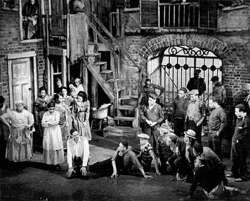The 2014 Nobel Peace Prize was awarded on Friday to Pakistani Malala Yousafzai and Indian Kailash Satyarthi for “their struggle against the suppression of children and young people and for the right of all children to education.”
“Children must go to school and not be financially exploited,” The Norwegian Nobel Committee stated in a press release. “In the poor countries of the world, 60% of the present population is under 25 years of age. It is a prerequisite for peaceful global development that the rights of children and young people be respected.”
Yousafzai, 17, was shot in the head by Taliban militants in 2012 for having the temerity to seek an education. The Islamist militant group also took issue with her for publishing a blog in 2009 that promoted the right to education. [..]
Satyarthi, 60, is a children’s rights activist who has dedicated his life to helping the millions of youths in India and around the world that have been forced into slavery.
A former electrical engineer, Satyarthi has participated in countless peaceful demonstrations and protests against the exploitation of children. He has mounted raids on factories where children were forced to work, and helped free and rehabilitate thousands. Satyarthi also established Rugmark (now known as Goodweave), a group that aims to “stop child labor in the carpet industry and to replicate its market-based approach in other sectors,” and currently heads the Global March Against Child Labor, a conglomeration of 2,000 social-minded organizations and trade unions in 140 countries.
Congratulations to Ms. Yousafzai and Mr. Satyarthi for their wonderful work on behalf of children around the world.





